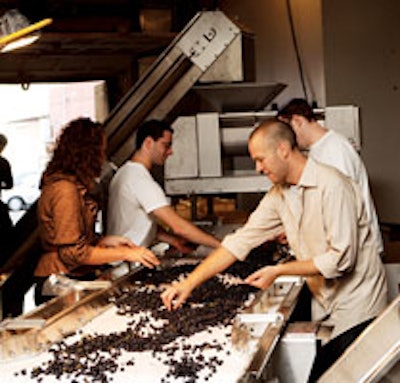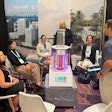Part extended job interview, part fraternity rush, summer associate programs are legendary for the lengths they go to to show their bright young things a good time. Dinners and happy hours are de rigueur, along with more elaborate entertainment such as evening casino cruises, weekend retreats, and sushi-making classes. But this year, managers and planners in corporate recruitment offices across North America say many of the excessive flourishes have been grounded.
While the vast majority of companies are carrying on with their summer programs, most acknowledge making economy-related alterations. Some have slashed their head count, some predict holding fewer events, and others say entertaining will be less lavish than in years past. “All of us are aware the economy just isn’t as good, so as I’m planning these events, that will absolutely be in the back of my head,” says Amy Simmons, manager of legal recruitment and professional development at Epstein Becker & Green in Washington. She traditionally coordinates theater trips, bowling outings, and an annual fete at the home of the firm’s chairman, along with more low-key gatherings such as an in-office happy hour on Fridays.
Activities that encourage mingling along with at least a minimal amount of physical exertion are still popular. Golf is a perennial favorite that appeals to multiple generations, while events targeted at associates and younger firm members tend to be more vigorous: Volleyball, basketball, and bowling are among the outings planners intend to keep.
Multiday retreats, on the other hand, are being curtailed. Kim Hensarling, attorney recruiting manager at Sutherland in Atlanta, says a previously held weekend beach getaway will probably not return this year.
Social events at O’Melveny & Myers L.L.P. in California’s Silicon Valley, like a weekend white-water rafting trip, are in flux every year, according to Beth Johnson, the firm’s director of attorney recruiting. “We are doing what we normally do, and being conscientious of the economy. Nothing has been ruled out yet,” she says. One of the firm’s flagship activities is surfing lessons for the 25 or so students in the company’s Southern California branches. “People really love it, and it’s easy for those offices to do it,” she says. Johnson adds that she still expects to hold evening gatherings like cocktail receptions and barbecues at partners’ homes.
Sacred cows—dinners with partners and happy hours—are undergoing some tweaks. Planners say they’ll be booking less-upscale restaurants. “If we’re taking them out to dinner, we may go someplace that’s a little more reasonable, as opposed to a more extravagant thing,” says Patti MacDonald, director of student and associate programs at Gowling Lafleur Henderson in Toronto. One New York planner who did not wish to be identified said the firm will be more vigilant about ending happy hours on time to avoid extra charges. She says summer associates will still be treated to off-site entertainment, although dinners beforehand are likely to be held in the company cafeteria.
Ethnic eats are a staple of many programs. Darin Brooks, recruiting partner at Beirne, Maynard & Parsons in Houston, includes visits to restaurants that reflect local flavor, from Tex-Mex to barbecue to Cajun cooking. For the past few years, Sally Woods, director of professional development at Fasken Martineau DuMoulin L.L.P. in Toronto, has brought global cuisine into the office by hosting a sushi-making class for associates in a boardroom.
Although saving money is a big motivation, planners say their more modest events also communicate to these possible future employees how the company conducts itself during a downturn. Woods gives associates a per-head budget and tasks them with planning an outing for themselves. This has led to everything from a chocolate-making class to a barbecue at one of the student’s homes to—most recently—a low-key evening at a local Mexican eatery. “You have to teach your students a certain responsibility, not just the law,” Woods says. “You try to expose them to so many things—office politics, social skills, and financial responsibility.”




















